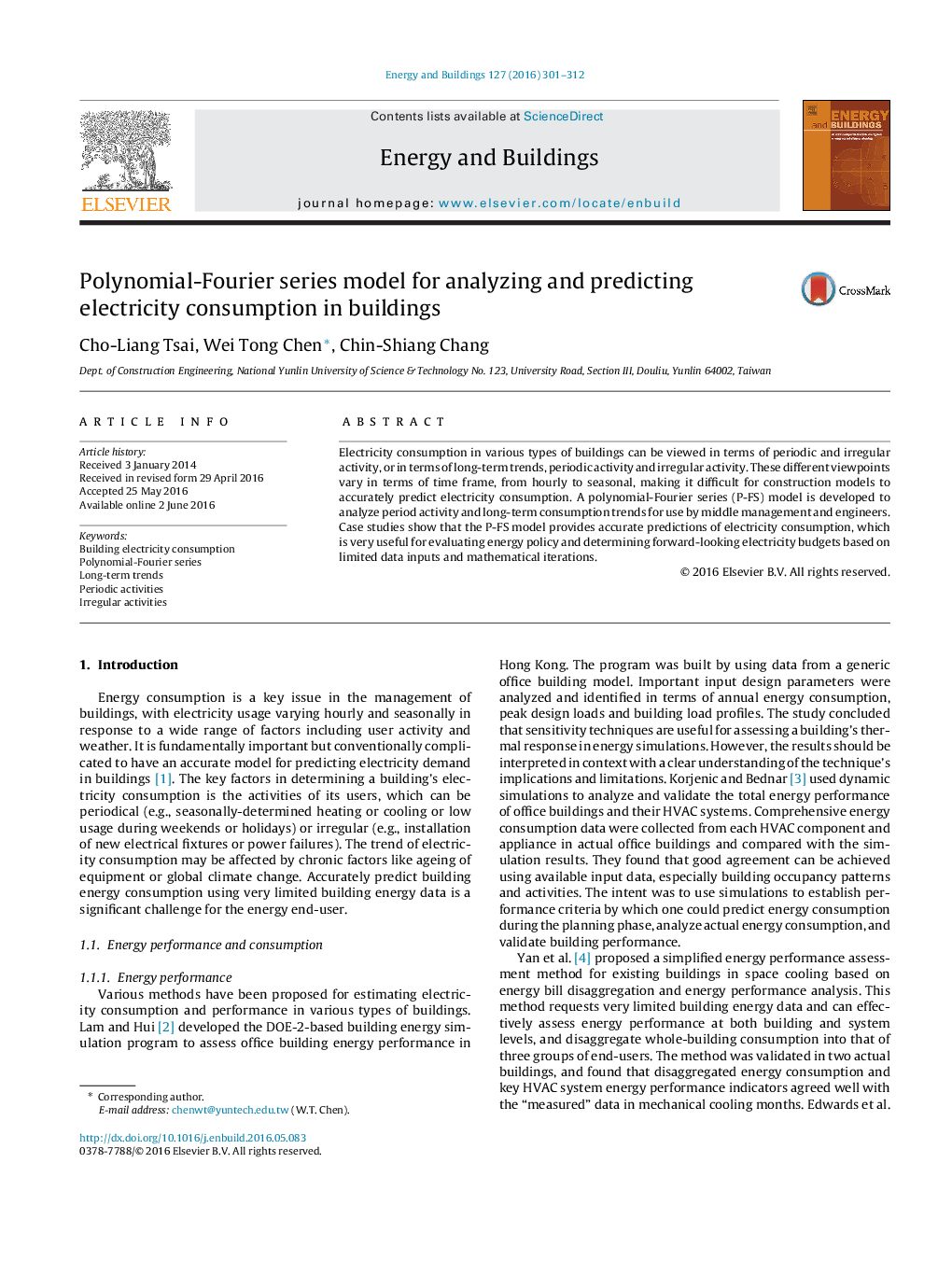| کد مقاله | کد نشریه | سال انتشار | مقاله انگلیسی | نسخه تمام متن |
|---|---|---|---|---|
| 261983 | 504007 | 2016 | 12 صفحه PDF | دانلود رایگان |
• A Polynomial-Fourier series (P-FS) model is developed to analyze electricity consumption which exhibit long-term trends and periodic fluctuations.
• Increasing terms of the polynomial or Fourier series of the model provides a better fit to the analyzed data, but does not improve prediction accuracy for new data.
• The major contribution of the study is the development of a process for finding the number of terms for the P-FS model which yields the best prediction results.
• The P-FS model clearly quantifies long-term consumption trends and the periodic consumption of electricity and offers numerical results for policy makers.
Electricity consumption in various types of buildings can be viewed in terms of periodic and irregular activity, or in terms of long-term trends, periodic activity and irregular activity. These different viewpoints vary in terms of time frame, from hourly to seasonal, making it difficult for construction models to accurately predict electricity consumption. A polynomial-Fourier series (P-FS) model is developed to analyze period activity and long-term consumption trends for use by middle management and engineers. Case studies show that the P-FS model provides accurate predictions of electricity consumption, which is very useful for evaluating energy policy and determining forward-looking electricity budgets based on limited data inputs and mathematical iterations.
Journal: Energy and Buildings - Volume 127, 1 September 2016, Pages 301–312
